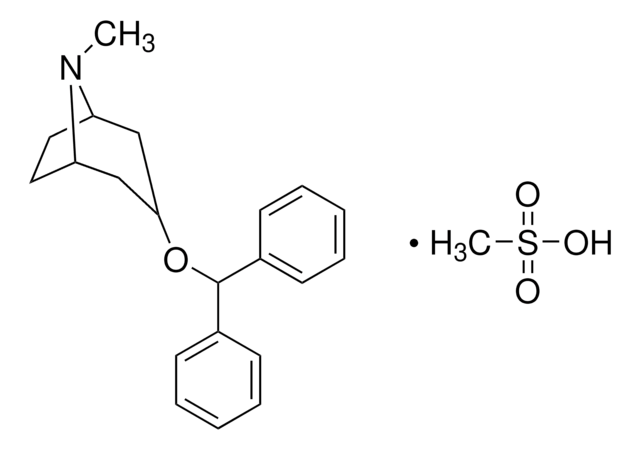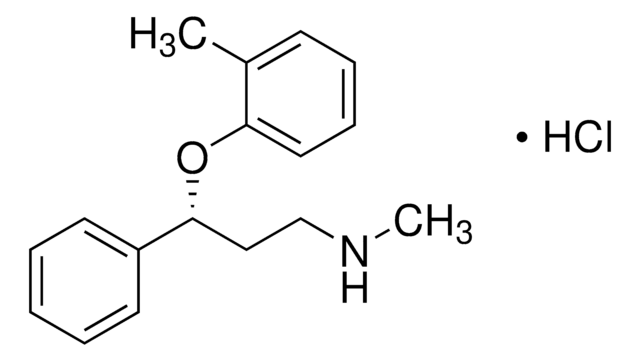C1671
Chlorprothixene hydrochloride
Sinónimos:
2-Chloro-9-(3-dimethylaminopropylidene)thioxanthene hydrochloride
About This Item
Productos recomendados
form
powder
Quality Level
storage temp.
2-8°C
SMILES string
Cl.CN(C)CC\C=C1\c2ccccc2Sc3ccc(Cl)cc13
InChI
1S/C18H18ClNS.ClH/c1-20(2)11-5-7-14-15-6-3-4-8-17(15)21-18-10-9-13(19)12-16(14)18;/h3-4,6-10,12H,5,11H2,1-2H3;1H/b14-7-;
InChI key
YWKRLOSRDGPEJR-KIUKIJHYSA-N
Gene Information
human ... DRD2(1813) , DRD3(1814) , HTR2A(3356) , HTR2C(3358)
¿Está buscando productos similares? Visita Guía de comparación de productos
General description
Application
Biochem/physiol Actions
signalword
Danger
hcodes
pcodes
Hazard Classifications
Acute Tox. 3 Oral
Storage Class
6.1C - Combustible acute toxic Cat.3 / toxic compounds or compounds which causing chronic effects
wgk_germany
WGK 3
flash_point_f
Not applicable
flash_point_c
Not applicable
Elija entre una de las versiones más recientes:
¿Ya tiene este producto?
Encuentre la documentación para los productos que ha comprado recientemente en la Biblioteca de documentos.
Los clientes también vieron
Nuestro equipo de científicos tiene experiencia en todas las áreas de investigación: Ciencias de la vida, Ciencia de los materiales, Síntesis química, Cromatografía, Analítica y muchas otras.
Póngase en contacto con el Servicio técnico










